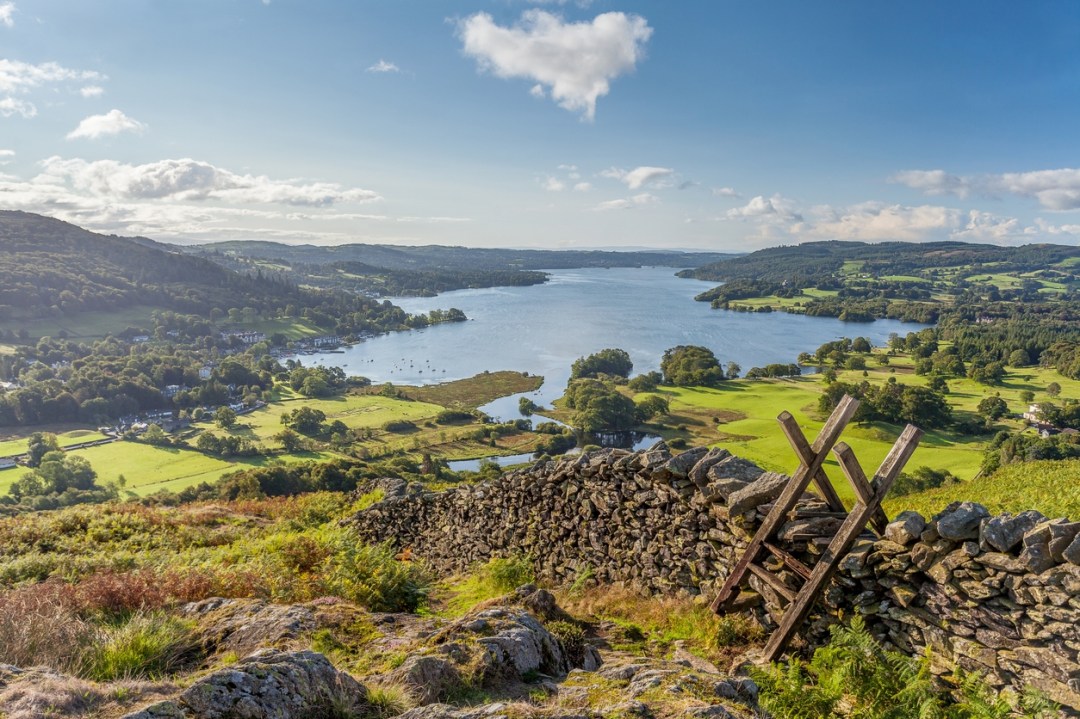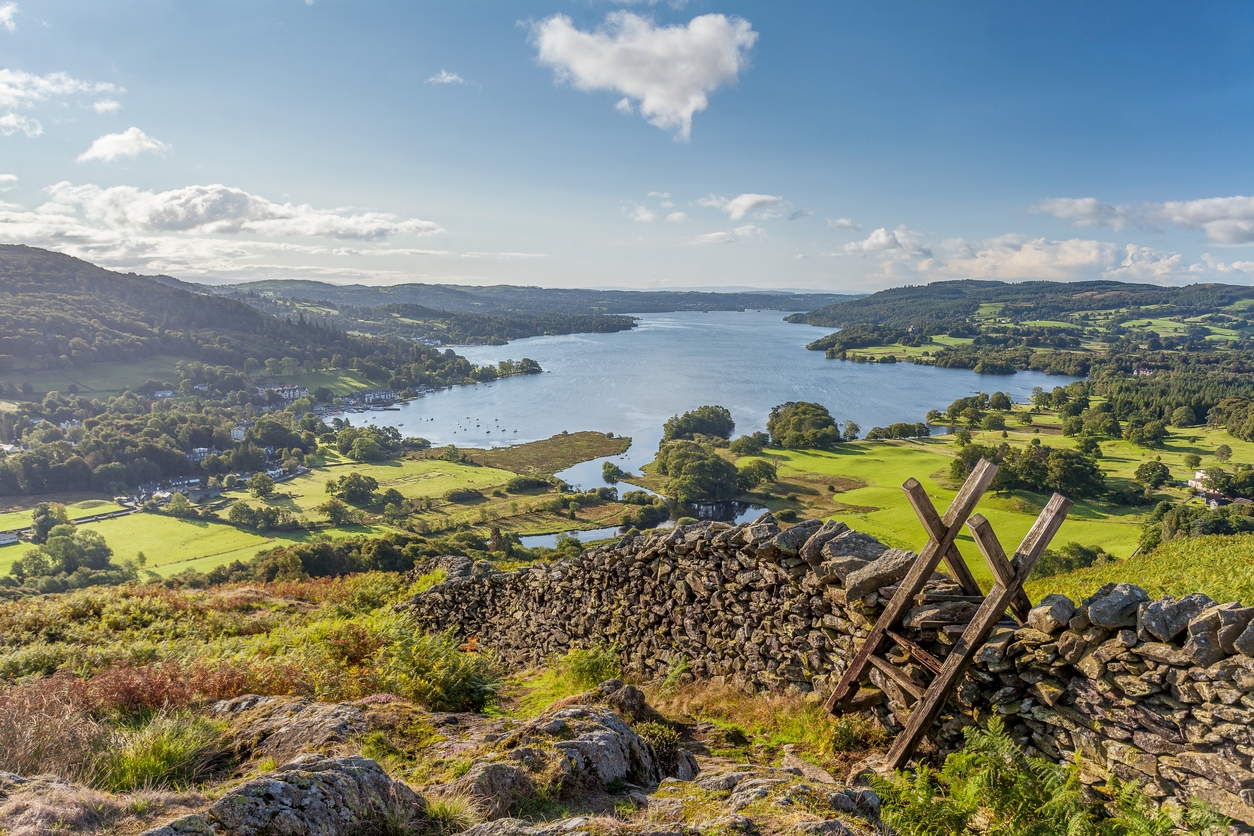At last, with the partial easing of lockdown, we have the consolation of an escape into the countryside. There, in the unquestioning simplicity of it all, we can leave society’s struggles behind. A sweet idea, but now rather behind the times, as shown by BBC Countryfile’s recent stirring into action. In its programme last night, Dwayne Fields delivered a piece on how the countryside needs to lose its ‘barriers’ and become truly welcoming to all communities. Ethnic minorities, he worried, feel that they ‘don’t belong’ in the countryside. Fields has done a great deal to introduce inner-city communities to the countryside and is unquestionably an admirable man. But his framing of this subject is mistaken.
Countryfile’s claims drew in part on last year’s Defra-commissioned report into the state of the UK’s national parks. It found that:
many communities in modern Britain feel that these landscapes hold no relevance for them. The countryside is seen by both black, Asian and minority ethnic groups and white people as very much a ‘white’ environment. If that is true today, then the divide is only going to widen as society changes. Our countryside will end up being irrelevant to the country that actually exists.
A study published in 2017 by National England found that 44 per cent of white people had ‘visited the natural environment’ in the previous week, a figure that fell steadily for mixed (39 per cent), Chinese (28 per cent), Black (26 per cent) and Asian (26 per cent) communities.
These apparently alarming differences, the psychotherapist Beth Collier told Countryfile, stem from a persistent strand of rural racism: previous generations of ethnic minorities in Britain felt intimidated on encountering countryside communities who had never seen non-white faces. Once their children were raised with the belief that it would be unsafe for them to venture into the countryside, a ‘generational disconnect’ severed non-white Britons from rural spaces. This, Collier concludes, has embedded the idea that being in nature ‘is a white thing to do’.
This is a complex problem, and the simple solution that ‘white people in the countryside’ are racist is naturally causing widespread offence. The implicit claim that outdoor spaces have also somehow adopted racial prejudice is as outrageous as it is absurd.
Instead, the discussion first needs to be framed in terms of geography and communities rather than the natural world. The most significant issue is demographic: those who live in a rural environment need do little more than leave their door to encounter the countryside, whereas those living in urban areas need time, money and planning to venture to it. It is of great relevance, then, that around 2 per cent of England’s BAME populace live in rural areas. I would hazard that this fact (which has its own complex explanations) has much greater bearing on the figures than the ‘barriers’ presented by cross-ethnic ‘perceptions’ of Mother Nature.
This same debate cropped up over the past winter in the case of our most popular national park, the Lake District. Richard Leafe, its ‘Chief Executive’, announced that the Lakes needed to change. Nature is not doing enough to be relevant, as Mr Leafe explained:
We are deficient in terms of young people, we are deficient in terms of black and minority ethnic communities and we are not particularly well-visited by those who are less able in terms of their mobility… We need to be able to sell the national park to everybody in Britain, all society, and it’s important that it doesn’t just become exclusive to one single use group.
It is of course true that the Lake District is predominantly white, as are most countryside regions. I grew up in the Eden valley of Cumbria, one of the whitest regions in England (98.9 per cent). Nearby Copeland is 98.5 per cent white and South Lakeland is 98.3 per cent. In other words, 99 of 100 locals here are likely to be white, and only one in a thousand is black.
But the place is hardly a bastion of little-Englanders: the Lake District is filled with tourists from all regions, whether visiting from Britain or abroad. Not only is there no reason the Lake District should be unappealing to non-white Britons, there is no reason why their level of engagement should steadily decrease in the future. In fact, for all its remoteness, the appeal of the area continues to grow: between 2012 and 2018, tourist visitors to the Lake District rose from 15 to 20 million.
I worry how this conversation comes about. Studies that divide interviewees by a crude grid of categories often find themselves posing answers in a similarly unnuanced and unhelpful fashion. Defra’s own report was partly based on a survey sent primarily to city-dwellers, many of whom will have not experienced the great outdoors first-hand. More valuable and positive insight would possibly have come from interviewing non-white visitors to the countryside, asking what had drawn them there and how fulfilling (or intimidating) they found that experience. To support the stark claim of countryside racism, direct experience should trump indirect supposition.
Truth be told, much of the countryside has an access problem, but not of the kind that sells papers. The Lake District, for instance, is the most north-westerly county in the country, and a good five hours from the capital. It needs to be actively sought out, and once found, the results are rugged and remote. It’s a land of mountains and meres, impassable crags and unfarmable fellside, that only hardy Vikings could take to with open arms. Essentially, the countryside is challenging because it’s hard work when you’re there. In the real world, not everyone is drawn to the prospect of getting tired or wet or cold or lost, or to being controlled by weather fronts and daylight hours. Nor, it happens, does everyone agree on what constitutes a beautiful view. And here is the crux of the matter: are these differences necessarily a bad thing, and should there be state coercion to ensure that everybody partakes equally in these activities? Are we to demand that visitor identities match perfectly with the population of England, or of the UK, or of the world?
It is not rural racism, I would suggest, but a widespread national ignorance of the pleasures of exercising in nature that keeps the countryside in the long grass. Education, broadcasting and public transport should open up these all-important vistas. For as a country we are extremely lucky: a huge portion of our land is countryside, criss-crossed by paths and bridleways. And it is explicitly welcoming: when you’re out and about (at least up north) everyone exchanges a greeting – not because it’s an exclusive country club for a select few, but because there’s a mutual respect of something bigger than the self. Whoever you are and wherever you have come from, the countryside leaves no space for ego. Both our national broadcaster and the chief executives of our national parks should be protecting them for the nation and projecting their appeal far and wide. And, whatever debates wrack our society, please, everyone, leave nature out of politics.






Comments